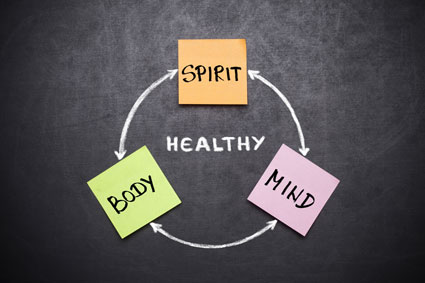Unhealthy relationships seem to abound. They appear in a variety of ways, from co-dependency, to physical abuse. They come in all shapes and sizes, and often it can be quite surprising who is involved in them. How many times have you seen a women with a man who everyone else says is completely wrong? Despite the fact that there are red flags everywhere, the person in the relationship fails or refuses to acknowledge this. Sometimes they may see it, but for a variety of reasons they do not acknowledge it, or make a change. Sometimes their reasons for staying are baffling; and sometimes this leads to a devastating end.
One type of relationship you may see is based on emotional addiction. The perfect example is the couple who loves to fight. They fight over everything and everyone, and sometimes it even escalates until law enforcement becomes involved. Many times it is the man who goes to jail and the wife presses charges against him. Subsequently, she drops the charges and takes him back and the cycle starts all over again. They have no intention of changing and don't want to because they are addicted to the adrenalin rush they get from playing the game.
Candace Pert in her book, "Molecules of Emotion," talks about how the body releases chemicals when emotions are activated. The person literally becomes addicted to the rush of anger, or whatever the emotion is, and continues to engage in behaviors or relationships that feed the addiction. In this example, the couple fights because they are emotionally addicted to the feelings they get from the chemicals released in the body. They continue on and on and this becomes the way their relationship operates until something breaks it.
Other folks are co-dependent. They live solely for the service and approval of the other person. They find their happiness or despair in the other person and that person's responses to them. They cannot function independently of the other and rely upon the other to make them okay.
Unhealthy relationships occur when we lose our autonomy. When we are not good enough in and of ourselves, but need to search outside ourselves for validation, that is when we start having problems. We no longer are good enough on our own, but need someone else to complete us. When we lose our sense of self-identity we lose our true self.
Often in unhealthy relationships, you will have people who like to control the other person. This can be in mild forms, such as showing dismay when a person engages in behavior you do not approve of, or it can be to the extreme, where the controlling person dictates every move and thought the other person has. The controlled person loses identity and becomes whatever the person doing the controlling says. The person being controlled feels as if they cannot be themself and fears doing anything that might go against what the controller wants.
In this situation, the person will end up having to justify to the other person why she/he is continuing to do this activity when in reality she/he just wants to. There is no privacy.
Unhealthy relationships also can be much more subtle. Not making the relationship a priority is one such example. There may not be screaming and yelling, but there is a much more quiet violence to the integrity of the relationship. Many times partners will spend more time with the guys watching football, or with the girls at a horse clinic, than with each other. Each person, or just one, engages in a lot of activities and time-consuming events away from the other; and when given the opportunity to spend time with their partner, they choose something else. The relationship is not the priority.
Both partners each need to give 100 percent to the success of the relationship, and to acknowledge each other's feelings. Too many times you see one partner give only a little, while the other gives the lion's share. Unhealthy relationships are founded upon the relationship not being the primary focus, and without both partners respecting the wants and needs of the other. Each partner needs to work at the relationship and see to it that it is balanced.
Sometimes in an unhealthy relationship, you will see that one person controls the resources, such as the family car, check book, food, and the like. When this happens, you may see the person in control holding the other party hostage. They don't get to have money for groceries, or use the car if they do not comply with the person in control. They are manipulated and forced into situations simply to survive.
What affects our relationships, and how they work or fail to work, depends on a variety of things. One of these things is our belief system.
Belief systems are thoughts and ideas that we have accumulated over time that we take as true. We then use them as the basis for our actions and responses to people, places, things, and events.
| For example, if you are a small child and have a father who ignores you despite your repeated attempts to interact, you can make a wide variety of assumptions concerning the meaning behind these behaviors. You could make the interpretation that you do not mean anything to your father; or it can mean you have no importance to all grownups; or you could justify your father's behavior as being busy, and so learn not to take it personally. We are free to see any situation as we want, and make our own ideas and interpretations about what it means to, or about, us. |
|
For example, if you grow up in a violent household you may learn to hide in order to protect yourself. You may be withdrawn and very passive. At the time you were little, this worked for you and kept you safe. Now, as an adult, you may find you are still doing the same thing -- not showing up for life, but hiding in the shadows.The little girl, now a grown woman, is still hiding. And as an adult, this belief that you should not participate in life, and you should live on the sidelines, may not be working for you. It may be keeping you from building relationships and really living. |
Belief systems are often accepted as a child and many times never questioned.
| For instance, there was a woman who reported that she had never had a banana because she knew they were awful. Her mother had told her that as a child. Now at 50, she still believed it. She openly admitted that her complete belief about how bad bananas were had nothing to do with her own experience, but only what she had been led to believe. When asked about challenging that belief, she agreed and tried one. She loved them. She was amazed at how she had allowed something she had been told as a mere child of 5 to govern her life.
Another example is a man who was incredibly accident-prone. He fell off moving motorcycles, down flights of stairs, and injured himself in a variety of ways. He couldn't understand why this never seemed to stop. Through self-growth programs he learned the answer. Apparently, he was an only child -- the center of everyone's universe. One day, his parents came home with another child. This newborn was now the center of the universe, not him.
He recalled being in his room playing while the family was in the other room, with his new sister. He started to go downstairs, lost his balance, and fell. Everyone heard the crash and came running. From that moment on, he was the center of their attention. He had found a way to beat out his little sister. His belief became, "If I have an accident of some sort, I get people's attention." His wife commented on how that same pattern was still affecting his life today. His accidents would happen when she was not focusing on him, or he was not getting the attention he thought he should. |
Maybe you saw several accidents at that spot and have concluded that it is just a dangerous area and no one is at fault, while the other person thinks that all safety precautions have been met and it was simply driver error. These differing belief systems are based on each person's life experiences, and how they color the world they see.
|
For example: some women have been raised to believe that men cannot be trusted, and they spend their lives distrusting men. Because a woman has formed this belief system, a man is doomed before they say hello. The same is true for men.
Some belief systems say that women should be in the home and be homemakers, and if they are not, they are not deemed acceptable. Other men may feel just the opposite and find those type of women failures and unacceptable. |
Knowing this, it is very important to be aware of what we believe and how it is affecting what we see, and how we interpret life and others. We also need to be mindful that other people come from a place with their own individual interpretations and understandings. Being aware of this, it is important to be respectful of others. Listen and try to understand their position. If we do this, and put ourselves in the other persons shoes, that should help reduce conflict.
The Effects of Fear
While it isn't nearly as romantic as the much uttered, "I need you" it is coming from a healthier place. If you "need" someone, you are implying a lack within yourself and a dependence on the other person to complete you. Although romantic-sounding, it places a burden on the other person. No one can complete us. We need to be whole in, and of, ourselves and not dependent on someone else to do that for us. It is not fair to you or your mate.
When you are with someone because you want to be, and not because of a need, you are really giving the other person a compliment. Being complete within yourself and not "needing" something, but still choosing to be with the other person, says volumes. In our society, it may not look as impressive on a Hallmark card, but it says more than saying, "I have a hole that you need to fix. I need something from you."
Often our relationships are affected by third parties -- those on the outside looking in who want to offer advice as to how to handle the situation. They may mean well, but they also may still want to dabble in your life. There is nothing wrong with listening; but turn to yourself and look within and feel what is best for you. Your answer may come from others, but don't give your power away. Listen and objectively assess their words and your own feelings, and make a decision that will work best for you.
Some folks believe they need to be concerned about others and how other people view them. They want to seek approval of their choices, and how they live, so others will see them in a positive way. If you live life from this viewpoint, you are not true to yourself, but are being held prisoner by people who haven't walked in your shoes and don't know first hand the situation. "What other people think of us is none of our business."






























